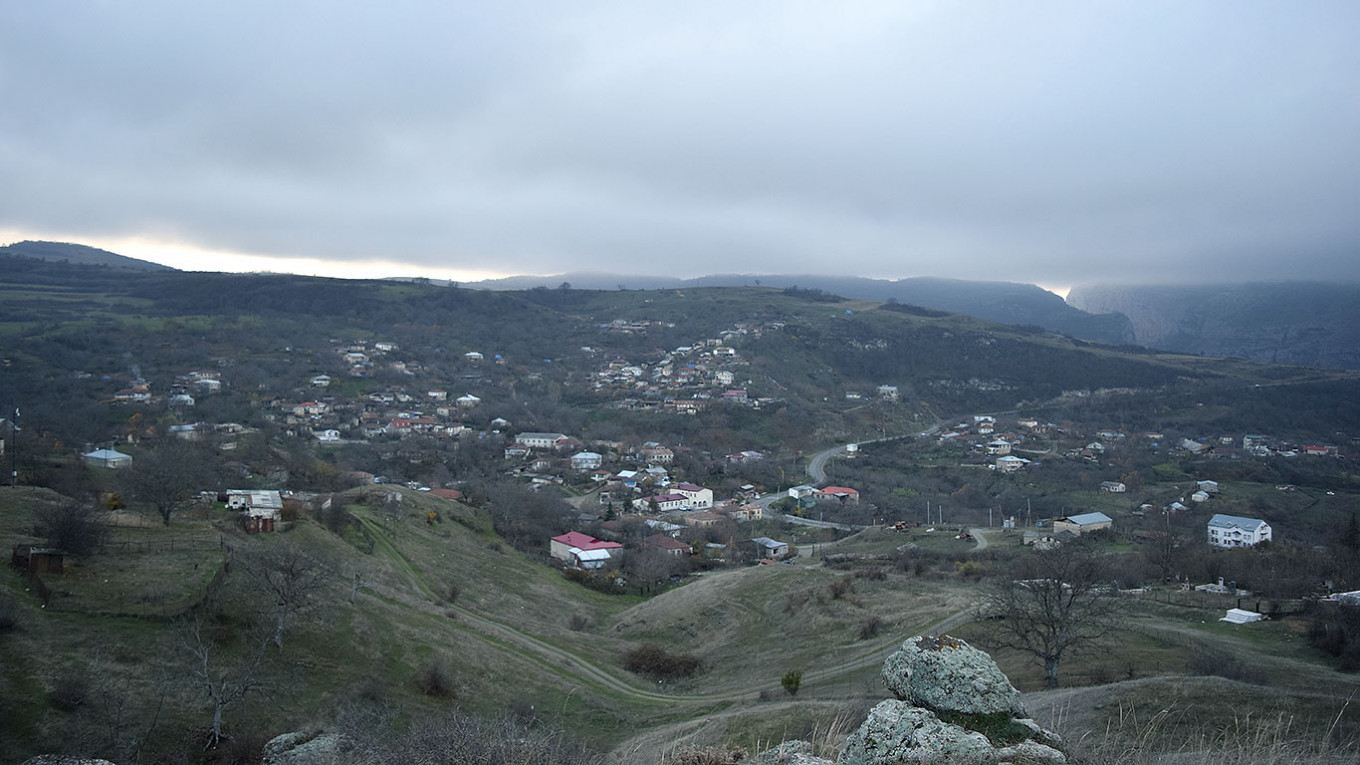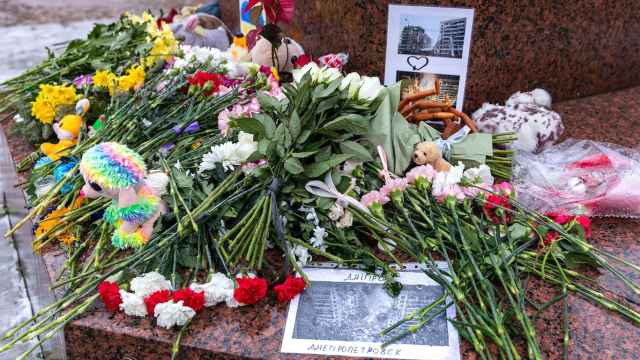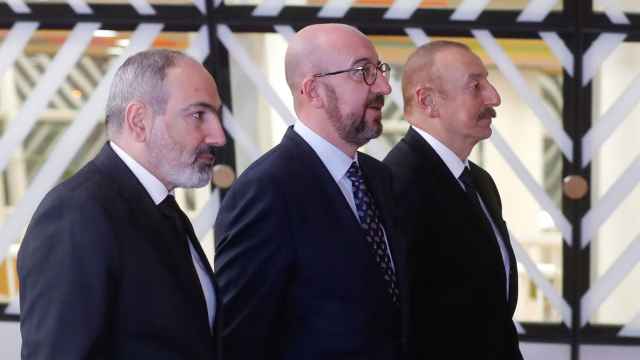The war in Ukraine has shaken Russia’s hold over the South Caucasus, a strategically important post-Soviet region where Moscow has traditionally played a key role, experts told The Moscow Times.
“Russia was already facing challenges in the South Caucasus with Turkey playing an ever greater role, but now it’s distracted and could lose ground,” said Paul Stronski, a South Caucasus analyst at the Carnegie Endowment for International Peace think tank.
None of the region’s three post-Soviet republics — Armenia, Azerbaijan and Georgia — backed Russia in a series of United Nations General Assembly votes to condemn the war. “Invading Ukraine is a very alarming precedent to set for all three countries,” said Stronski.
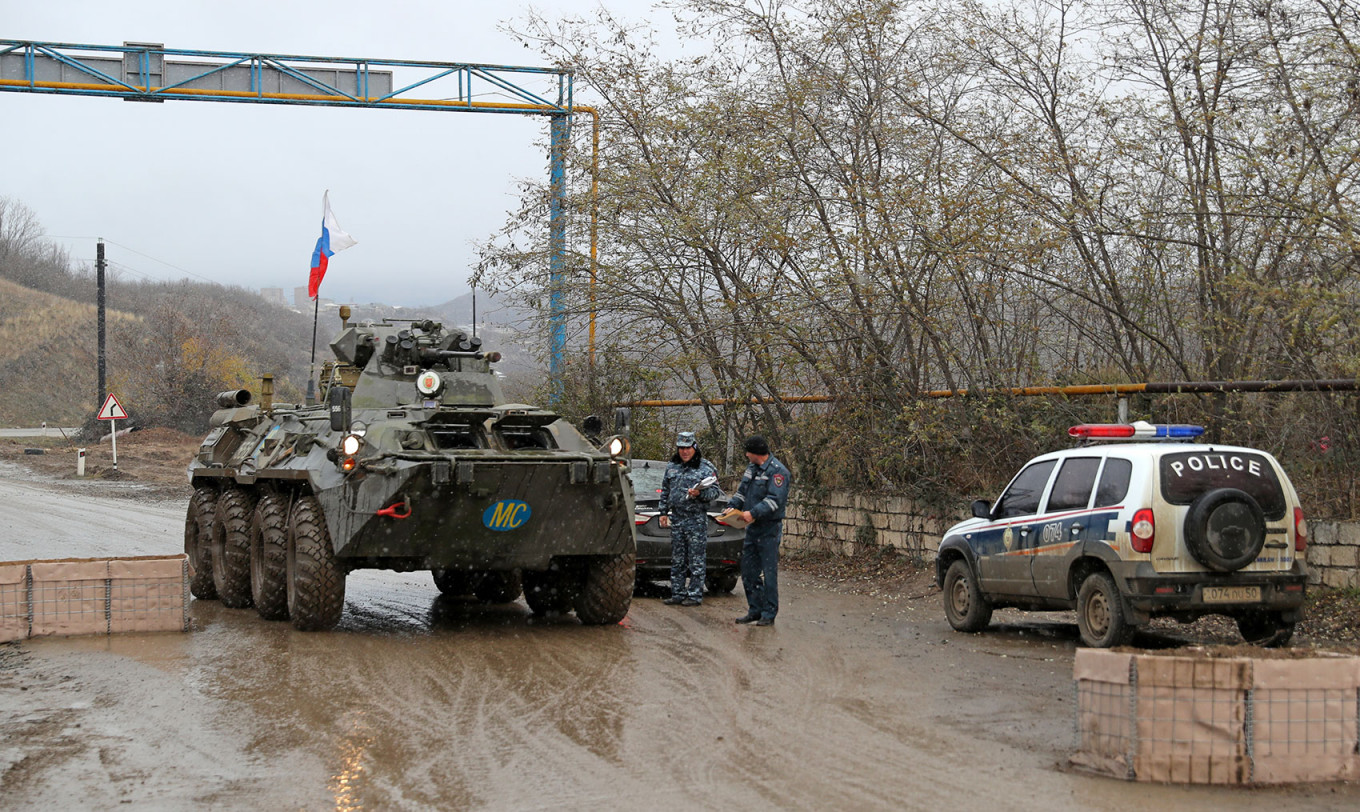
Key to Russian influence in the South Caucasus is its role in Nagorno-Karabakh, a breakaway territory internationally recognized as part of Azerbaijan but inhabited predominantly by ethnic Armenians. While Russia enjoys good relations with both Armenia and Azerbaijan, the latter is also an ally of Turkey, Moscow’s main regional competitor.
After Baku’s victory over Yerevan in a six-week war in mountainous Nagorno-Karabakh in late 2020, Russia became the guarantor for the disputed region’s Armenians, with about 2,000 Russian peacekeepers deployed to police the frontline between the two sides.
Recent rumors that Russia was withdrawing at least part of its contingent for service in Ukraine contributed to an escalation of hostilities in Nagorno-Karabakh, where ceasefire violations are a common occurrence.
Azerbaijani troops occupied the village of Farrukh in Nagorno-Karabakh at the weekend amid an upsurge in fighting and accusations from either side.
Russia’s Defense Ministry accused Azerbaijan of violating the ceasefire in Nagorno-Karabakh, and said Moscow’s peacekeeping contingent would “take measures to resolve the situation.”
The war of words is a striking turnaround in relations between Russia and Azerbaijan, barely a month after President Ilham Aliyev visited Moscow on the eve of the war in Ukraine.
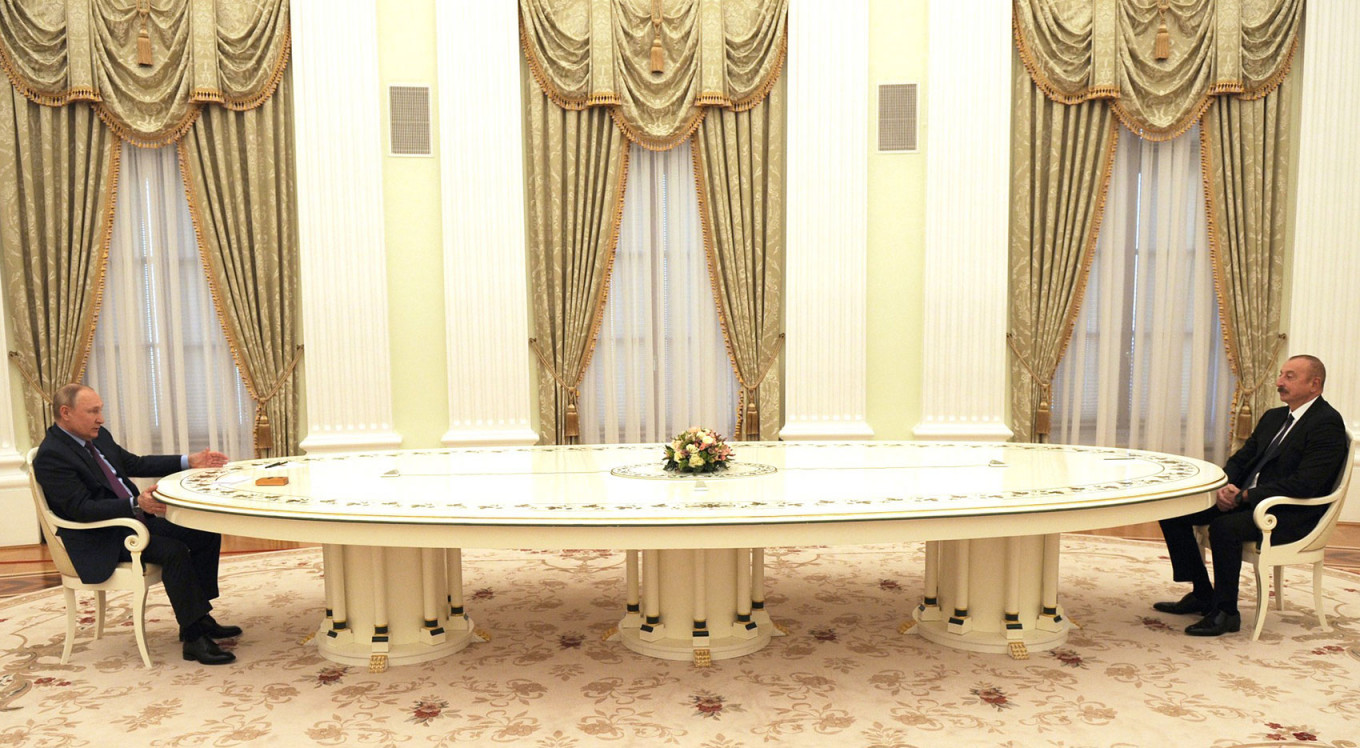
Loyalist media in authoritarian Azerbaijan have mostly trodden a careful line on the war, expressing oblique support for Ukraine.
For its part, Ukraine has traditionally been aligned with Azerbaijan, selling Baku arms, whereas Armenia is dependent on Russia for its security.
The flare-up in Nagorno-Karabakh suggests Azerbaijan is mimicking Russia’s policy in Ukraine by attempting to re-write facts on the ground, analysts said. The seizure of Farrukh could signal a more aggressive approach from Baku.
“Historically, Russia being weak and distracted has contributed to escalation in Nagorno-Karabakh,” said Rauf Mamadov, an expert at the Middle East Institute. “Baku could be trying to test the waters by leveraging the precarious situation in which Putin’s Russia has found itself.”
The war in Ukraine also has ramifications for Georgia, the Caucasian state that has historically had the most antagonistic relations with Russia.
In recent years, Tbilisi has gone to some lengths to avoid giving offense to Moscow, denying entry to some high-profile Russian opposition figures.
Even so, many in Georgia — a largely pro-Western country — fear an already isolated Russia could be emboldened to launch further military incursions, even if its military is weakened by the Ukraine war.
“The Kremlin has fewer reasons for restraint,” said Hans Gutbrod, a professor at Georgia’s Ilia State University. “The Rubicon has been crossed.”
For their part, the breakaway republics of South Ossetia and Abkhazia, which are internationally recognized as part of Georgia and depend heavily on Russian largesse, have backed Moscow’s operation in Ukraine.
Social media footage, including video posted by South Ossetian president Anatoly Bibilov, has shown local troops apparently fighting inside Ukraine. Ukrainian officials said Wednesday that about 2,000 Russian and South Ossetian troops were redeployed.
Both Abkhazia and South Ossetia have also extended political support, formally recognizing the pro-Kremlin breakaway republics in eastern Ukraine and holding rallies in support of their independence.
“We stand with the people of Russia,” Abkhazian President Aslan Bzhaniya said at a March 11 gathering where he announced his self-proclaimed state’s recognition of the Donbas republics.
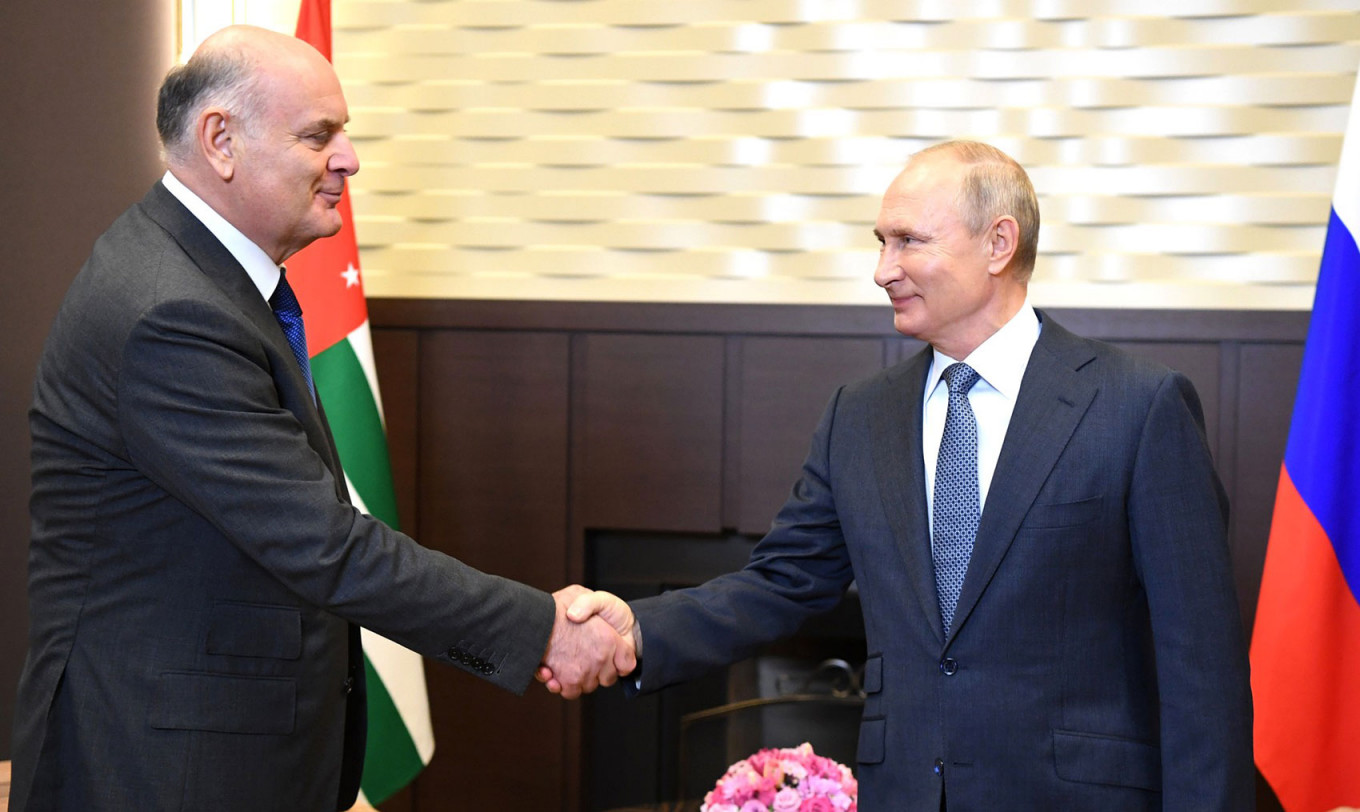
Though both Abkhazia and South Ossetia are widely seen as appendages of Russia, a recent announcement by Moscow that it is cutting subsidies raises the specter of Russian authority waning even in Sukhumi and Tskhinvali.
For Gutbrod, the Kremlin’s embarrassment at military failures in Ukraine could spur it to take a more active role. “The Kremlin may conclude that it needs to reassert its authority in the Caucasus,” he said. “More uncertainty may be ahead.
A Message from The Moscow Times:
Dear readers,
We are facing unprecedented challenges. Russia's Prosecutor General's Office has designated The Moscow Times as an "undesirable" organization, criminalizing our work and putting our staff at risk of prosecution. This follows our earlier unjust labeling as a "foreign agent."
These actions are direct attempts to silence independent journalism in Russia. The authorities claim our work "discredits the decisions of the Russian leadership." We see things differently: we strive to provide accurate, unbiased reporting on Russia.
We, the journalists of The Moscow Times, refuse to be silenced. But to continue our work, we need your help.
Your support, no matter how small, makes a world of difference. If you can, please support us monthly starting from just $2. It's quick to set up, and every contribution makes a significant impact.
By supporting The Moscow Times, you're defending open, independent journalism in the face of repression. Thank you for standing with us.
Remind me later.



